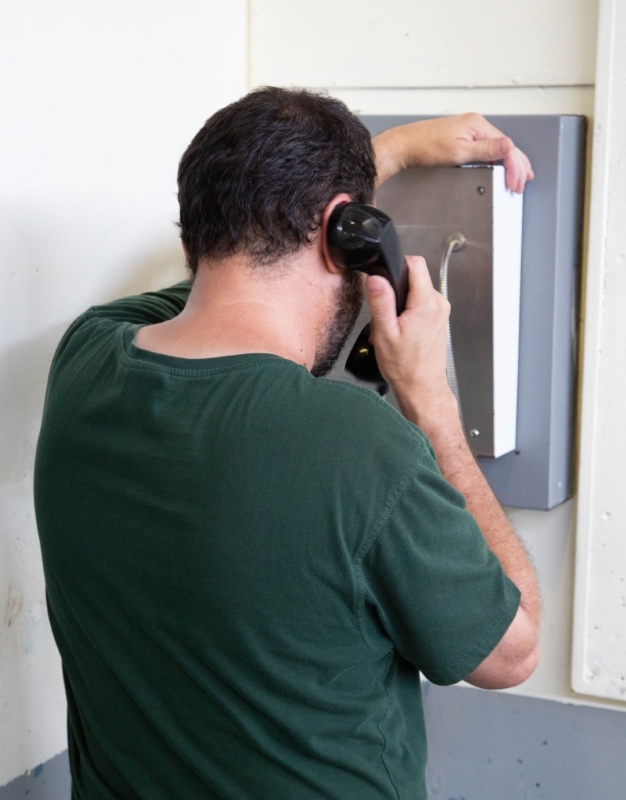Automatic language translation
Our website uses an automatic service to translate our content into different languages. These translations should be used as a guide only. See our Accessibility page for further information.
10 October 2025
People receiving phone calls from inmates in NSW correctional centres will now hear the caller’s full name before deciding whether to accept the call.
Until now, the system only announced the name of the correctional centre, so the person answering the phone didn’t know who was calling. This allowed some inmates to misuse the system, including contacting people who were legally protected from them.
To improve safety, the system has been updated. Now, when a call comes through, a recorded voice will say something like:
“This is a call from First Name, Last Name at Site name Correctional Centre.”
This gives the person receiving the call the chance to decline the call or hang up if they feel unsafe or don’t want to speak to the caller. They can also report the call to the police or Corrective Services NSW if needed.
The change follows serious concerns about victims being contacted by inmates, including cases where court orders were breached.

The updated caller ID system is designed to support safer, more respectful communication. It helps protect people from unwanted or harmful contact, while also making it easier for loved ones to identify calls they want to answer. For inmates who are genuinely trying to reconnect, this transparency can help rebuild trust and reduce misunderstandings.
It’s part of Corrective Services NSW’s commitment to community safety and supporting rehabilitation through more accountable communication.
This change also reflects a commitment to ensuring systems respond to community concerns. By updating the system for inmate phone calls, Corrective Services NSW is taking a proactive step to protect victims, uphold legal protections, and support safer reintegration for inmates.
Inmates have also responded positively to recent changes. One wrote to Corrective Services NSW to express gratitude for the reduced cost of phone calls, saying it made a real difference in staying connected with loved ones. These kinds of improvements, both technical and financial, help support rehabilitation by making communication more accessible and respectful.

Last updated:
We acknowledge Aboriginal people as the First Nations Peoples of NSW and pay our respects to Elders past, present, and future.
Informed by lessons of the past, Department of Communities and Justice is improving how we work with Aboriginal people and communities. We listen and learn from the knowledge, strength and resilience of Stolen Generations Survivors, Aboriginal Elders and Aboriginal communities.
You can access our apology to the Stolen Generations.